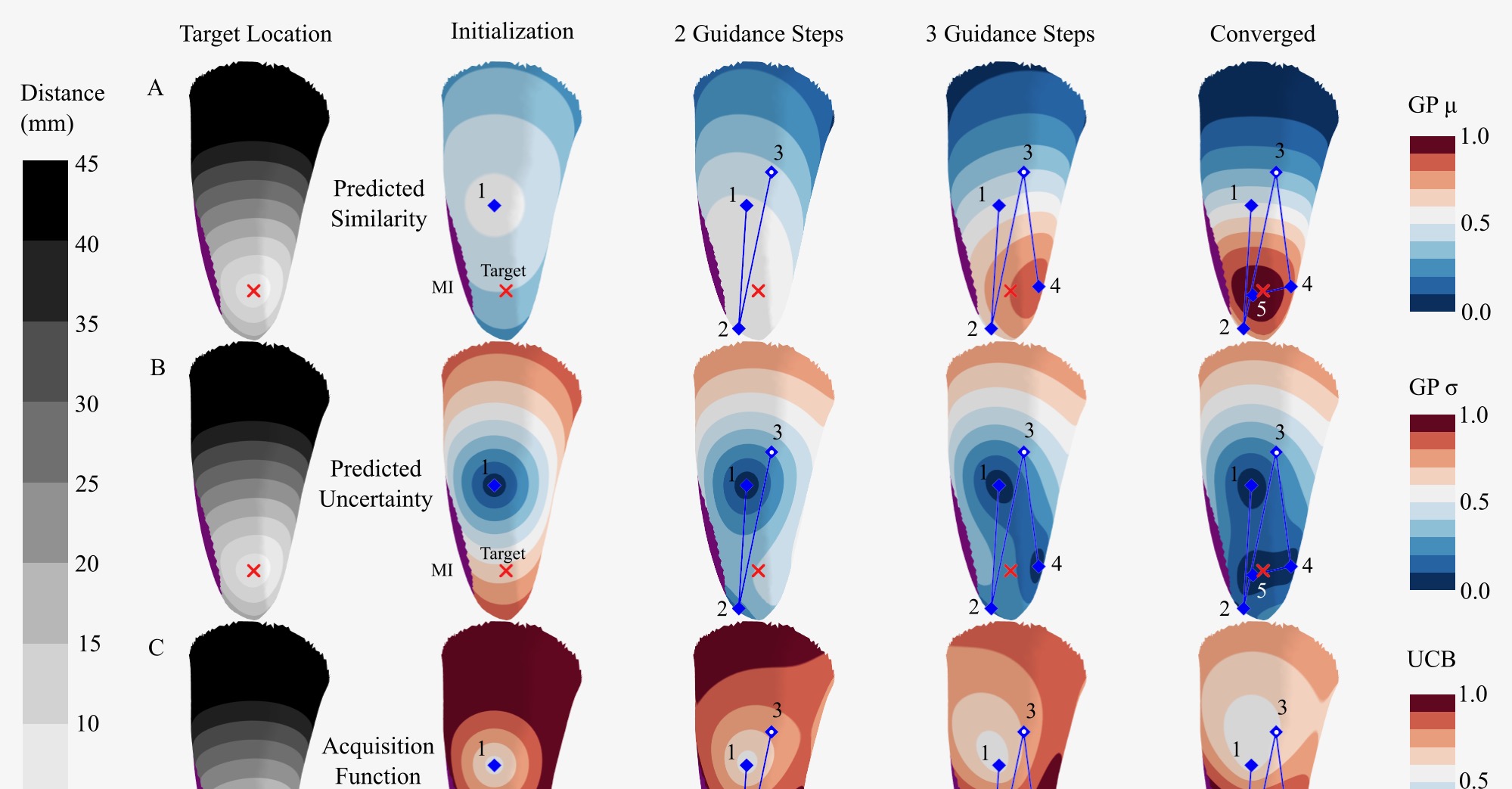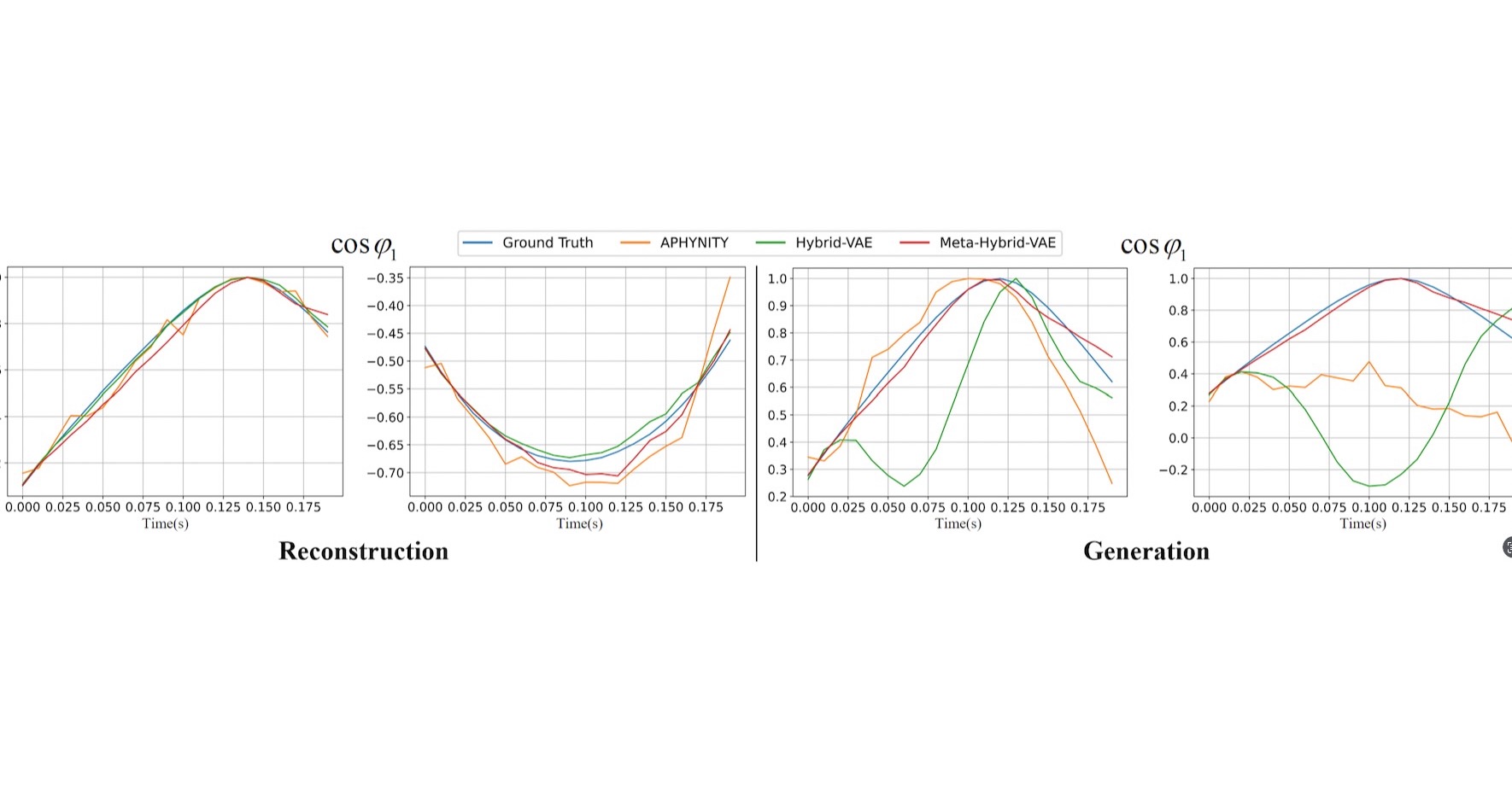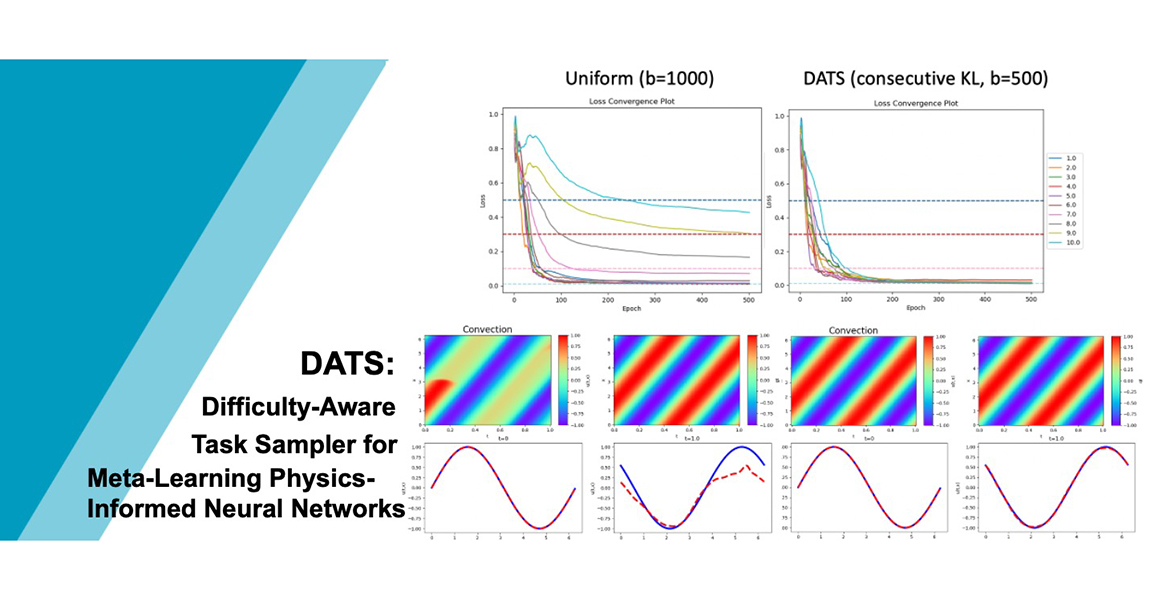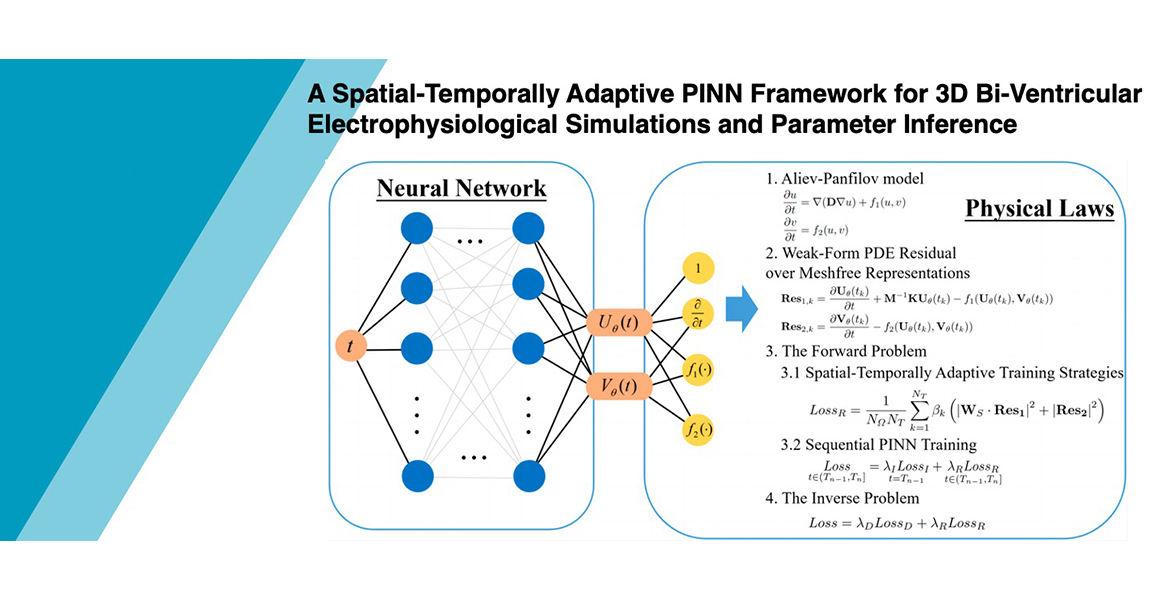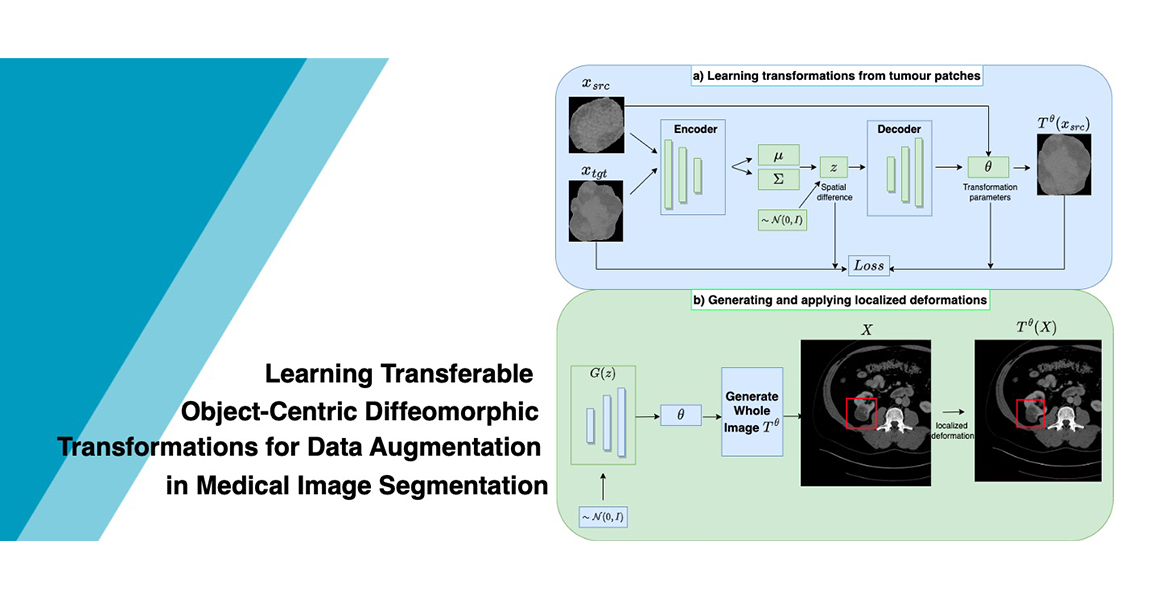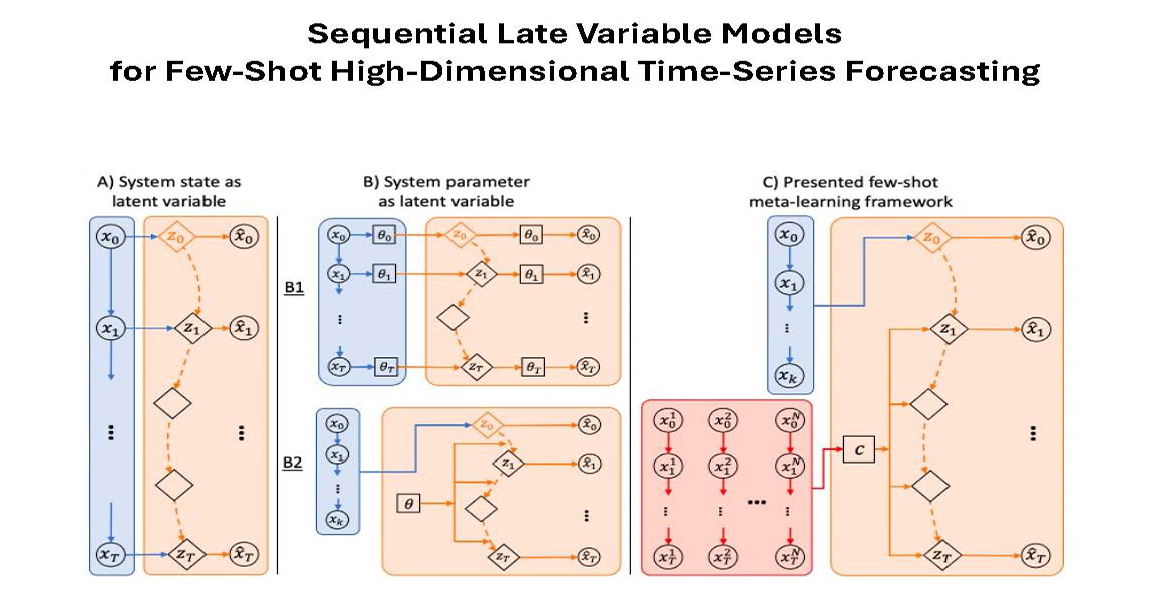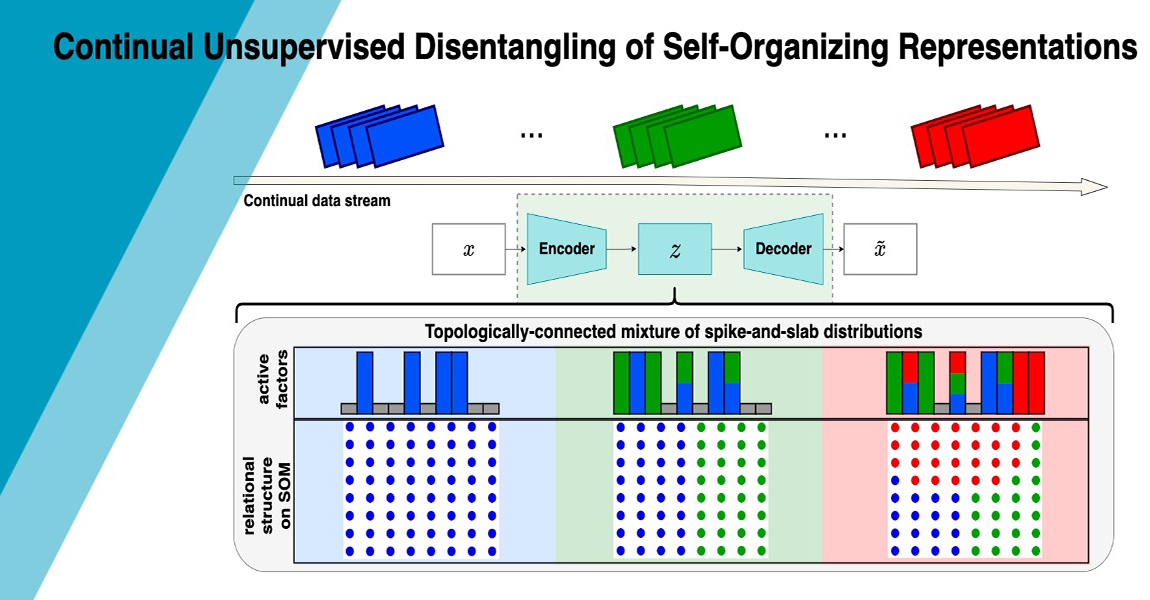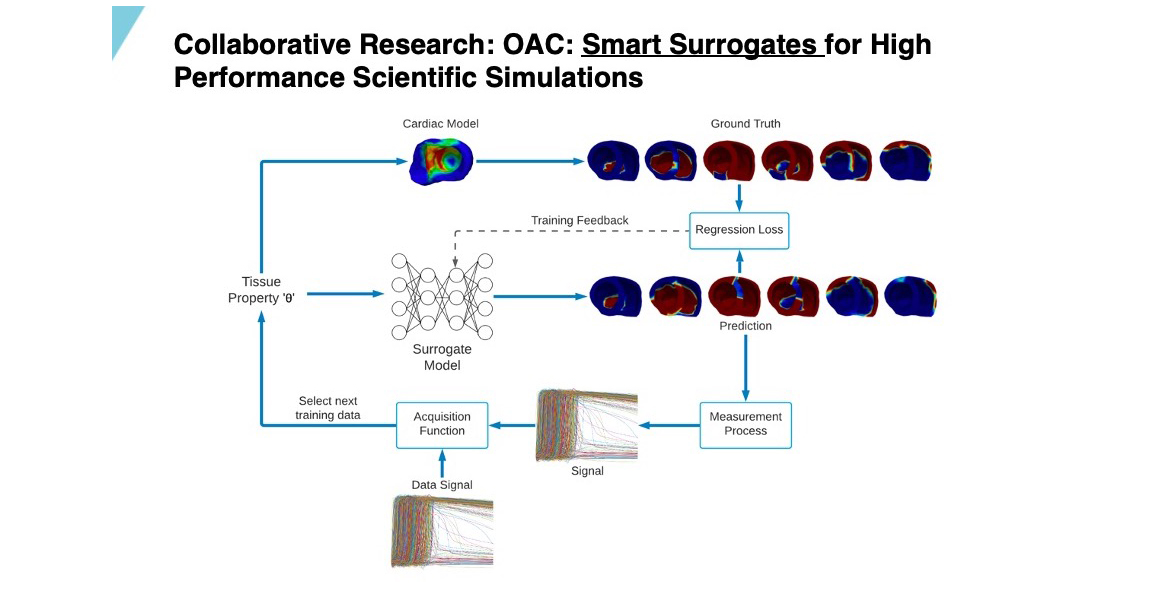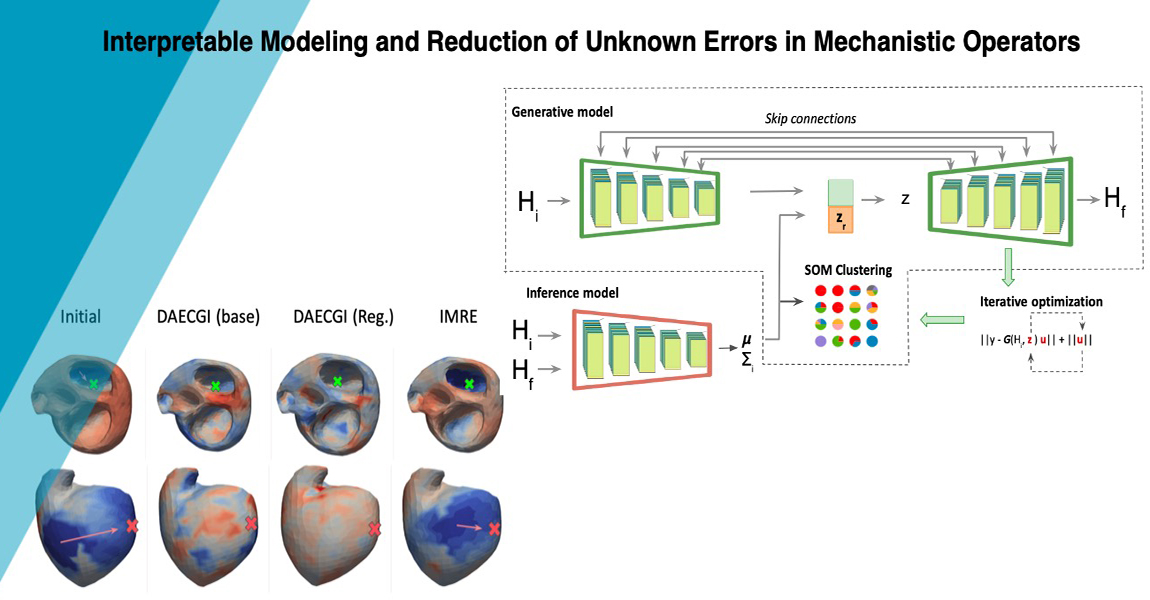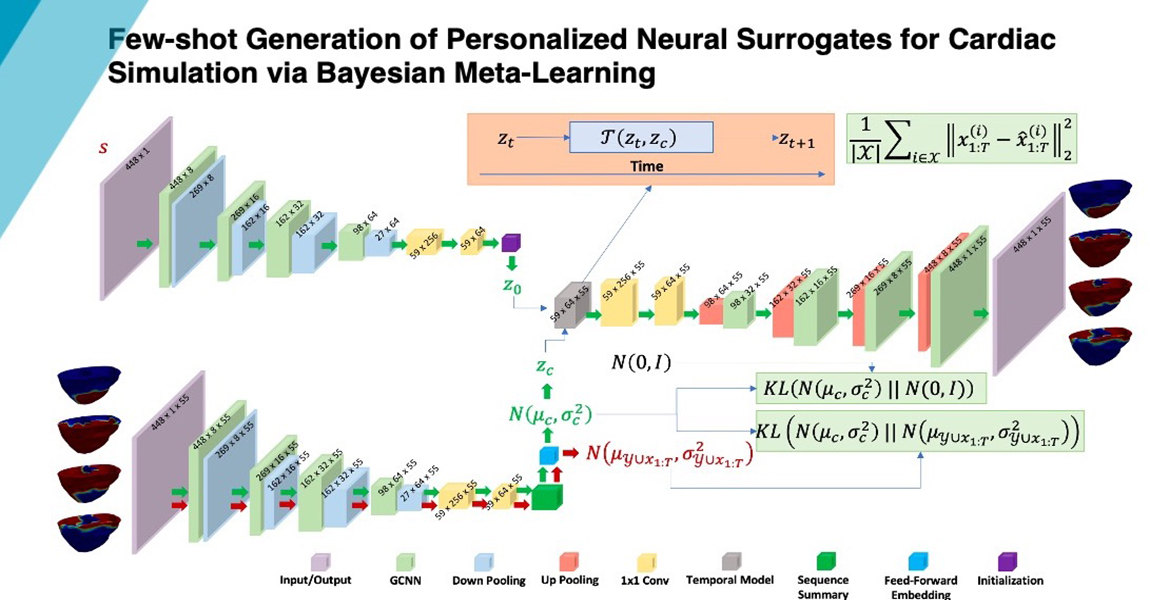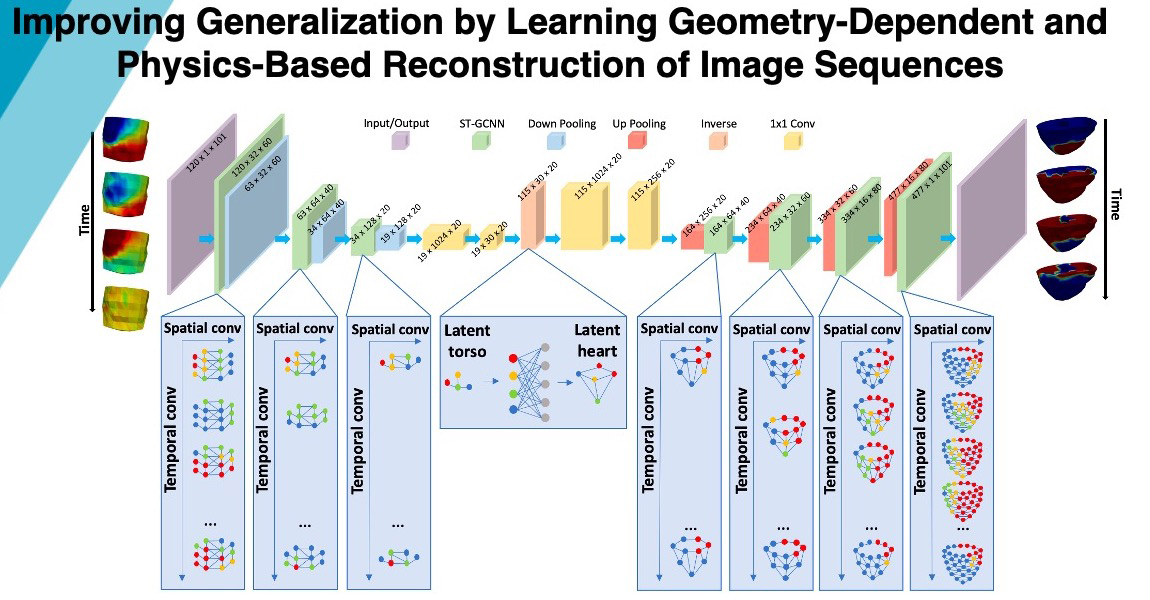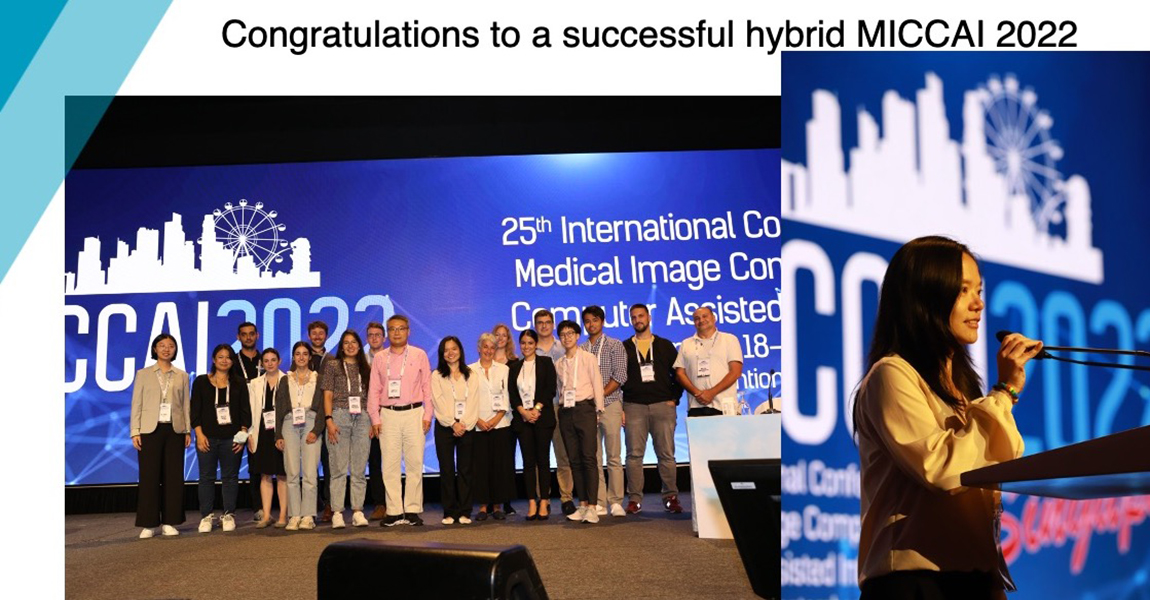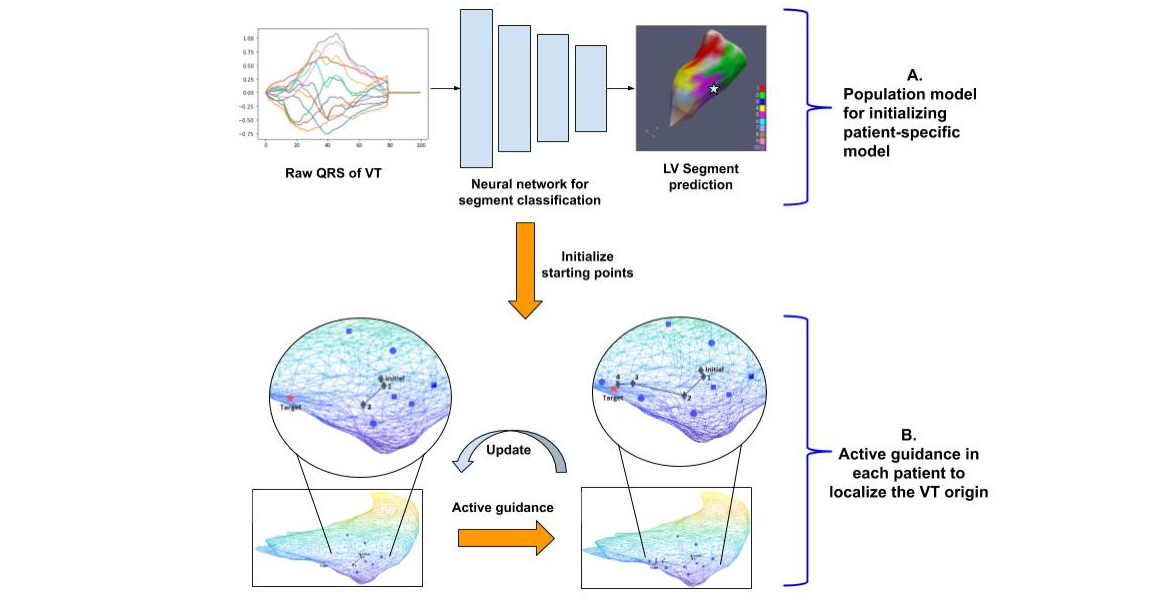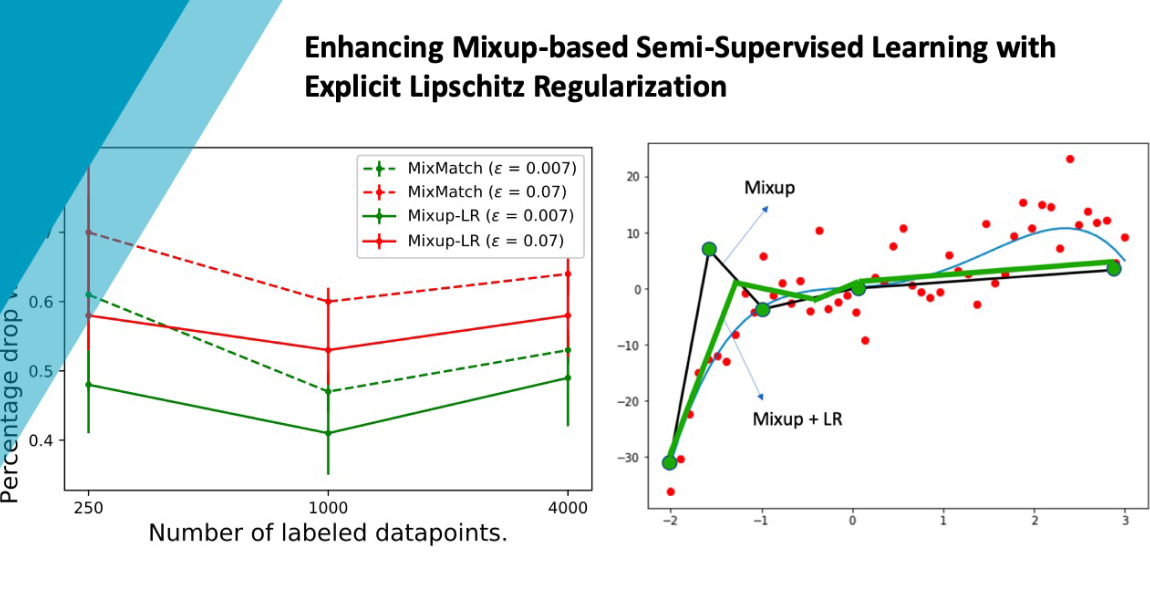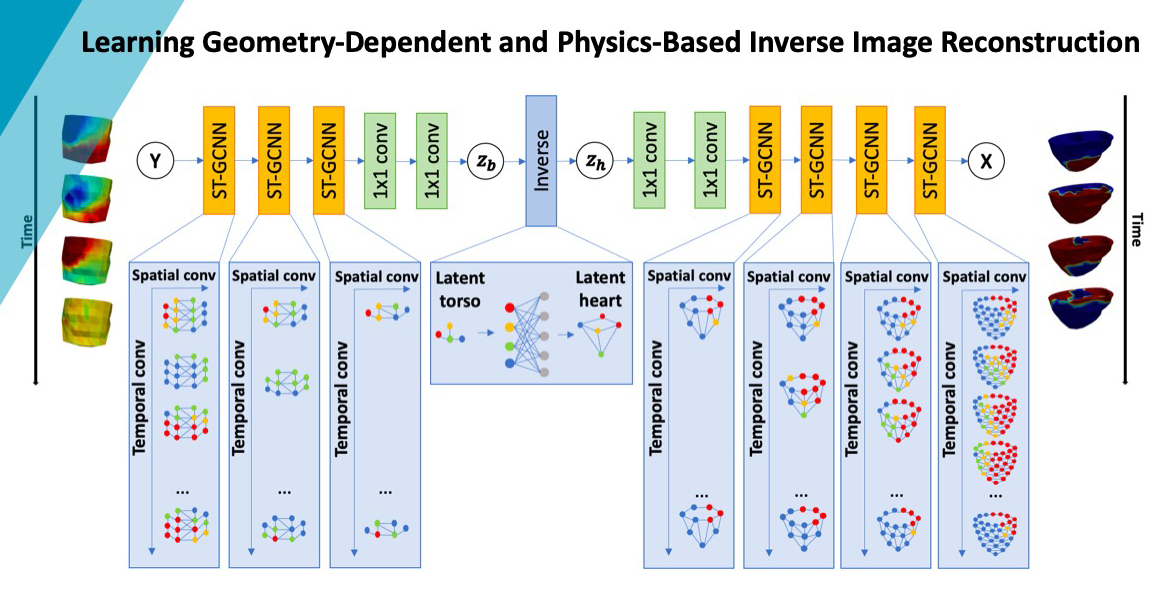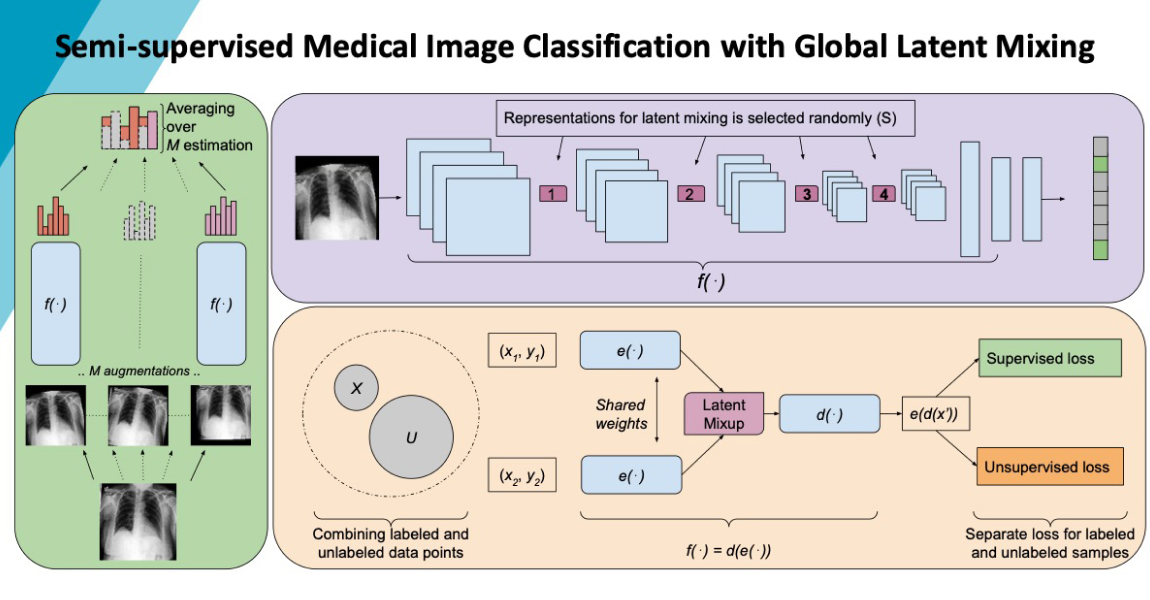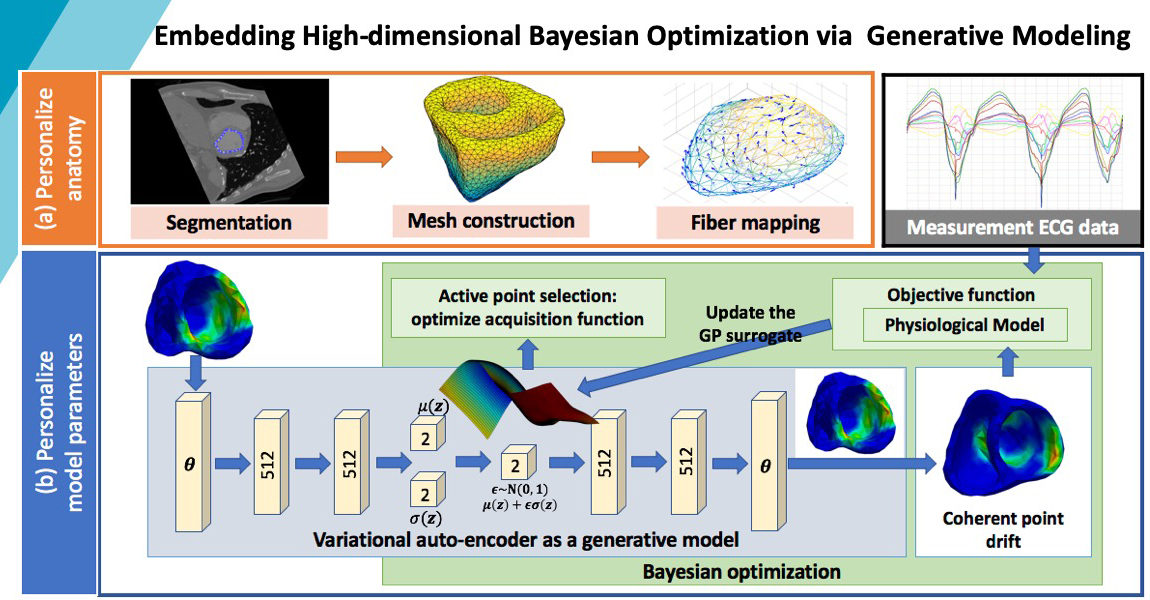News
RIT News
-
June 3, 2024
![a man is shown standing next to equipment in a research lab.]()
Engineering faculty and cardiologist collaborate to design heart pump assessment prototype
Researchers at RIT are developing technology that will be able to determine the lifespan of a heart valve with more precision.
-
June 12, 2023
![seven researchers posing for a photo outside of R I T's clinical health sciences center.]()
RIT and FDA test digital therapy/avatar to treat addiction, reduce intimate partner violence
Researchers from five colleges at RIT are testing a new way to deliver mental health therapy to people struggling with alcohol/drug addiction and aggressive behavior. RIT is running a randomized clinical trial with the Food and Drug Administration to test the therapy platform “RITchCBT” as a tool for treating people whose substance use disorders have led to intimate partner violence.
-
April 29, 2023
![crowd of people walking in between bricks buildings under a sign for Imagine R I T.]()
Imagine RIT festival proves the future is bright
Thousands of visitors at the 2023 Imagine RIT: Creativity and Innovation Festival got to see what’s on the horizon in the areas of technology, the arts, and design. Festivalgoers traversed RIT’s campus on Saturday, exploring more than 350 exhibits.
-
December 6, 2021
![the Vela pulsar, a rapidly rotating neutron star.]()
RIT scientists develop machine learning techniques to shed new light on pulsars
New machine learning techniques developed by scientists at Rochester Institute of Technology are revealing important information about how pulsars—rapidly rotating neutron stars—behave. In a new study published by Monthly Notices of the Royal Astronomical Society, the researchers outlined their new techniques and how they applied to study Vela, the brightest radio pulsar in the sky.
-
August 18, 2021
![person standing in front of a room addressing a group of people.]()
NIH recognizes RIT for enhancing faculty gender diversity in biomedical and behavioral science
The National Institutes of Health has awarded RIT the NIH Prize for Enhancing Faculty Gender Diversity in Biomedical and Behavioral Science. The prize went to 10 institutions that have acted to effect systemic change in gender diversity and equity among faculty members within their biomedical and behavioral science departments, centers, or divisions.
-
July 21, 2021
![professor looking at student's work in a cluster of computers.]()
CAREER Awards advance promising research for future innovators and leaders
NSF Faculty Early Career Development (CAREER) Award winners are among an elite group of research faculty on campus and across the country. CAREER Awards are just one of several indicators of a university’s growing research initiatives, funding sources, and faculty innovation.
-
October 23, 2020
![four researchers posing for photo.]()
Research team wins Catalyst Award in first year of international challenge
David Borkholder, Linwei Wang, Caroline Easton, and Adam Smith, part of RIT's Personalized Healthcare Technology signature research initiative, recently won a Catalyst Award from the National Academy of Medicine for their project, “Improving Health for the Aging through Daily Vital Signs Monitoring.”
-
October 14, 2020
![reseacher posing in lab.]()
RIT, URMC receive grant to study benefits of AI-enabled toilet seat technology
Toilet seats with high-tech sensors might be the non-invasive technology of the future that could help reduce hospital return rates of individuals with heart disease. A joint project by researchers at RIT and the University of Rochester Medical Center will determine if in-home monitoring can successfully record vital signs and reduce risk and costly re-hospitalization rates for people with heart failure. The five-year, $2.9 million venture is funded by the National Institutes of Health.
-
October 9, 2020
![professor in atrium of college.]()
Linwei Wang named new director of RIT’s Personalized Healthcare Technology initiative
Linwei Wang has been named the new director of the Personalized Healthcare Technology signature research initiative at RIT, and Adam Smith has been named Creative Director, a new position with the group.
-
February 14, 2020
![researcher posing in lobby of building.]()
Helping heart surgeons see more clearly
Associate professor Linwei Wang is leading an international group of researchers and clinicians developing computational systems for creating individualized 3D imaging of a patient’s heart. With these 3D heart models, clinicians now have a noninvasive way to study their patients.
-
September 13, 2019
![Gloved hands work on semiconductor wafer.]()
RIT Sponsored Research garners $74 million in funding
RIT had its second best year ever in sponsored research funding and a record year for research expenditures in fiscal year 2019. RIT received 366 new awards totaling $74 million in funding, and expenditures grew to $58 million.
-
July 12, 2019
![Woman wearing black blouse sits in front of desk with computer.]()
Professor honored with Presidential Early Career Award for Scientists and Engineers
RIT computing professor Linwei Wang, whose research is advancing non-invasive personalized healthcare for heart diseases, is receiving the Presidential Early Career Award for Scientists and Engineers, the highest honor bestowed by the U.S. government on outstanding scientists and engineers who are beginning their independent research careers and show exceptional promise for leadership in science and technology.
Pagination
CBL News
- October 2024
Casey’s work was accepted into CBM for an active learning based AI model that can guide clinical pace-mapping procedure to intervention targets in real time for ventricular arrhythmia of the heart.
- October 2024
Yubo’s work was accepted to NeurIPS 2024 for establishing the identifiability of a hybrid neural-physical deep generative model via a novel use of meta-learning formulation.
- January 2024
Maryam’s work on adaptive task sampling for meta-learning PINNs is accepted for publication ICLR 2024.
- October 2023
Yubo’s work on developing PINN for cardiac electrophysiology simulation is accepted for publication in MICCAI 2023.
- October 2023
Nilesh’s work on developing an object-centric shape augmentation is accepted for publication in MICCAI 2023.
- January 2023
Xiajun and Ryan’s work on meta-learning to adapt heterogenous dynamics in time-series forecasting was accepted for publication as a spotlight in ICLR 2023.
- January 2023
Zhiyuan’s work in continual unsupervised representation learning was accepted for publication as a spotlight in ICLR 2023.
- October 2022
Linwei, in collaboration with colleagues at Rutgers University and University of Virginia, were awarded a new NSF CISE core grant on developing the methodological and computing infrastructure for Smart Surrogates!
- October 2022
Maryam and Nilesh’s joint work on hybrid mechanistic-neutral modeling of forward imaging operators in ECGI was accepted for publication in MICCAI 2022.
- October 2022
Xiajun’s work on few-shot meta-learning of personalized neural surrogates for cardiac simulations was accepted for publication in MICAAI 2022.
- October 2022
Xiajun’s extended work on incorporating geometry to improve generalization of image reconstruction networks was accepted for publication in IEEE Transactions on Medical Imaging.
- September 2022
Congratulations to a successful hybrid MICCAI 2022 in Singapore, which concludes Linwei's responsibility as the Program Chair for MICCAI 2022.
- November 2020
Ryan and the team's work was accepted for combining a disentangling deep-learning model and a patient-specific "active" guidance model for progressively prompting pace-mapping towards the origin of VT.
- September 23, 2020
Prashnna's work was accepted in ICDM 2020 for improving SSL by explicit regularization of neural function smoothness.
- July 18, 2020
Xiajun MICCAI acceptance in his first year of PhD, for incorporating geometry and physics into an image reconstruction network.
- May 22, 2020
Prashnna's work was accepted in MICCAI 2020 with early acceptance, for improving SSL by global mix-up.
- May 2020
Jwala and Pradeep's work was accepted in Medical Image Analysis for enabling Bayesian optimization over high-dimensional space via embedded generative modeling.
Archive
- HRS Acceptance: Our work was accepted by HRS 2020 and selected to participate in The EP Concepts Ignited: Innovative Techniques and Technologies special poster session created to highlight the most novel and innovative abstracts of 2020.
- MICCAI Board: Linwei was elected as a member for Board of the MICCAI Society, starting her four-year term in 02/2020.
- ICLR 2020 Acceptance: Zhiyuan's work was accepted as an oral spotlight (6% selection rate) in ICLR 2020. This work presents a novel approach to learning disentangled representations in a progressive manner, from the most abstract to the more detailed.
- Isaac Newton Institute Fickle Heart meeting: Linwei was invited to participate and talk in the Fickle Heart Meeting on Uncertainty Quantification in Cardiac Modeling, organized at the Isaac Newton Institute for Mathematical Science at the University of Cambridge (https://www.newton.ac.uk/event/fht)
- NIH R15 grant: The CBL is awarded with a R15 research grant from the National Heart, Lung and Blood Institute (NHLBI) that will start July, 2018!
- MICCAI 2018 acceptance: Congratulations to Jwala and Sandesh for their paper acceptances in MICCAI 2018!
- MeDIA acceptance: Congratulations to Jwala for her work in uncertainty quantification accepted for publication in Medical Image Analysis!
- EP Europace acceptance: Congratulations to the CBL for the work in ECGi of scar-related VT accepted for publication in EP Europace!
- MICCAI 2017 acceptance: Congratulations to Sandesh for paper acceptance in MICCAI 2017!
- IEEE TMI acceptance: Congratulations to Jwala on having her paper accepted for publication in IEEE Transactions on Medical Imaging!
- IPMI 2017 acceptance: Congratulations to Jwala on having her paper accepted for publication in IPMI 2017!
- MICCAI 2017PC member: Congratulations to Linwei on being selected on serve on the Program Committee for MICCAI 2017!
- MICCAI2016 acceptance: Congratulations to Jwala to have her paper accepted for publication in MICCAI 2016!
- NSF REU Site: A new exciting REU-site is starting 2016 summer at RIT, of which I’m a faculty mentor with our project on “multi-sensor fusion for cognitive modeling”. Students are welcome to apply to the site here: www.cs.rit.edu/~reu
- IEEE TMI acceptance: Congratulations to Azar on having her multiple-model approach to uncertainty study accepted for publication in IEEE Transactions on Medical Imaging 2015!
- Interspeech 2015: The sensor-fusion team funded by Kodak Endowed Chair Funds has had a productive summer with one paper accepted into Interspeech 2015, and another accepted into Facial Analysis, Animation, and Auditory-Visual Speech Processing!
- Azar’s dissertation defense: Azar has successfully passed her dissertation defense and completed her dissertation. She will be heading to Microsoft at Seattle in July, 2015!
- MICCAI2015 acceptance: Congratulations to Jingjia to have her paper accepted for publication in MICCAI 2015!
- IEEE TBME acceptance: Congratulations to Azar to have her journal article accepted for publication in IEEE Transactions on Biomedical Engineering.
- NIH R21 grant: The CBL was awarded with an R21 research grant from the National Heart, Lung and Blood Institute (NHLBI) that will start Nov, 2014!
- UNYCES Gordon K. Moe Young Investigator Award: A big congratulation to Azar on winning the Gordon K. Moe YIA on the 24th Annual Upstate New York Cardiac Electrophysiologist Society Meeting (Nov 3, 2014, Buffalo, NY).
- IEEE TMI Acceptance: Jingjia has her first major journal publication in the IEEE Transactions on Medical Imaging.
- ICIP 2014: Azar has had another paper accepted into ICIP 2014 which will be held in Paris, France on October 27-30, 2014. This work precedes her MICCAI paper that looks at a multiple-model approach to transmural EP imaging using a hierarchical Bayesian approach.
- MICCAI 2014 Acceptance: Big congratulations to Both Jingjia and Azar on having their paper accepted into MICCAI 2014 at the first round of early acceptance. Azar’s paper studies a multiple-model approach to transmural EP imaging in comparison to traditional approaches that are typically based on one fixed prior model constraint. Jingjia’s work, continuing on our MICCAI 2013 work, studies the use of total-variation constraint in TEPI in a variational Bayesian framework. MICCAI 2014 will be held in Boston, MA on September 14 - 18.
- ISBI 2014 Best Paper Travel Award: Azar’s paper, entitled “Electrophysiological Imaging of Volumetric Infarct Border Using a Spatio-Temporal Lp-Norm Constraint”, was selected as one of the only 3 winners of the Best Paper Travel Award in ISBI’ 2014.
- CVPR 2014 Acceptance: Jingjia’s paper, entitled “Total-Variation Minimization on Unstructured Volumetric mesh: Biophysical Application on Reconstruction of 3D Ischemic Myocardium”, was accepted into CVPR 2014. This year’s acceptance rate of CVPR is 29.88%.
- NSF-CAREER Award: I was awarded the NSF CAREER grant for the project “CAREER: Integrating Physical Models into Data-Driven Inference” for 2014 - 2019.
- ISBI 2014 Acceptance: We have two papers, first authored by Azar and Hongda, respectively, accepted into ISBI 2014. In the meanwhile, I am also co-chairing a special session on Clinical Potential of Noninvasive Bioelectrical Imaging, with Dr. Dana Brooks (Northeastern University)
- CMMM Leading Guest Editor: I served as a guest editor together with Dr. Vicky Wang (University of Auckland, New Zealand) and Heye Zhang (Shenzhen Institutes of Advanced Technology, China) for a specific issue, entitled “Image-Based Computational Cardiology: From Data to Understanding” in Computational and Mathematic Methods in Medicine. The targeted publication date of this special issue is January 24, 2014.
- Digital Rochester Great Award 2013: Jingjia was selected as one of the three finalists for the Student Achievement Awards in Digital Rochester Great Award, which is of substantial impact among the Greater Rochester community.
- MICCAI 2013 Acceptance: After being published in MICCAI 2012 during her first year of doctoral study, Jingjia continued to have her second MICCAI published in 2013 on work entitled “A Novel Total Variation Based Noninvasive Transmural Electrophysiological Imaging”.
- ISBI 2013 Acceptance & Award: Azar’s paper, entitled “The Impact of Ventricular Shape Variations on Inverse Electrocardiography: A Feasibility Study”, was accepted into ISBI 2012. It was selected as a podium presentation (18% acceptance rate). Azar was also awarded an NSF Travel Scholarship to attend and present in ISBI 2013.
- MICCAI 2012 Acceptance: Six months after the beginning of her doctoral study, Jingjia had a paper accepted into MICCAI 2012. It is a great achievement for a first-year student to publish in this top conference in biomedical computing.
- HHMI Fellowship 2012-2013: Azar recently received a prestigious Howard Hughs Medical Institute Med-into-Grad Fellowship in Cardiovascular Science at the University of Rochester Medical Center for 2012-2013.
- UNYCES’12: I co-chaired the Organization Committee with Dr. George Porter (University of Rochester) for the 22nd Upstate New York Cardiac Electrophysiologist Society Annual meeting 2012, which was successfully held on October 26, 2012 at Rochester, NY
- ISBI 2012 Special Session: I co-chaired a special session in ISBI 2012 with Dr. Maxime Sermesant (INRIA, France) and Rafael Sebastian (Universitat de Valencia, Spain), entitled Image-Based Computational Cardiac Physiology.












